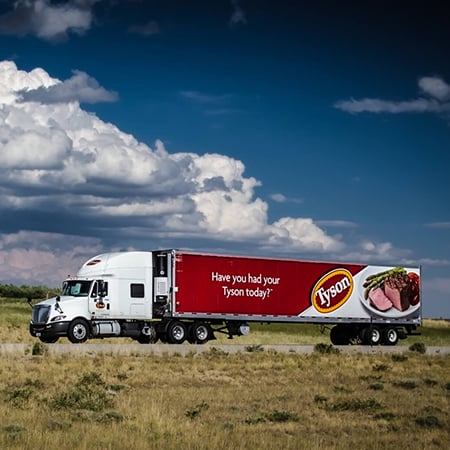

Tyson Foods is one of the most dangerous places to work in America, with extensive operations throughout our great State of Texas. Because of this, you would think Tyson would cover its Texas employees with workers’ compensation. You would be wrong. Tyson chooses not to cover its Texas-based employees with normal workers’ compensation. Instead, Tyson runs a fake “workers compensation” system in Texas designed to save Tyson money by taking advantage of injured employees when they are most vulnerable.
How Tyson’s fake worker’s compensation system works
Tyson will pay some medical and other benefits for a couple of weeks or so after an on-the-job injury. After that, Tyson Foods forces its employee to sign a “WISP waiver” in which the employee promises to never sue Tyson for the work injury
If the employee chooses not to sign this WISP waiver, Tyson cuts them off permanently from any and all benefits, no matter how severe their injury is or where they are in the course of medical treatment.
If the employee does sign the WISP waiver, they will face a rigged program Tyson calls its “Workplace Injury Settlement Program – Texas.” Tyson’s program is full of red tape and terms that are extremely unfavorable to the injured employee. Tyson set this program up to save itself as much money as possible, to the detriment of its employees.
Tyson Foods’ employees lack information to properly decide whether to sign Tyson’s WISP waiver
Most of the time, Tyson Foods employees do not have enough information to make a properly informed decision on whether to sign Tyson’s WISP waiver. Tyson employees who face this situation should definitely consult a qualified work injury lawyer before deciding. Learn more about how employers attempt to discredit you from recovering compensation for your injuries and how our experienced work injury attorneys can help.
The Texas legislature encourages employers to provide workers compensation by offering a benefit to those who choose to do so: Employers who have workers compensation cannot be sued by their injured employees, and those employees can collect certain benefits without having to sue their employer. Employers who choose not to get workers compensation – like Tyson – can be sued by their injured employees and lose certain defenses in a lawsuit they could otherwise assert.
What does this mean? Injured Tyson Foods employees should have a qualified lawyer compare their legal rights and possible benefits under Tyson’s fake workers’ compensation program to their legal rights and possible benefits in a lawsuit against the company. At our firm, we have provided this service to Tyson employees many times.
Who Tyson’s rigged system hurts
Due to Tyson’s large size and significant employee injury history, its fake workers’ compensation system impacts a large number of injured workers.
Tyson is one of the largest corporations in America, with a net worth over $20 Billion. Tyson processes and markets chicken, beef and pork. Tyson employs over 100,000 people who work in over 300 Tyson facilities. In Texas, Tyson owns and operates more than 300 facilities, over 100 of which are in the U.S.
Tyson’s employee injury history
Tyson’s employee injury history is troubling. Starting in January 2015, the U.S. Occupational Safety and Health Administration required employers in 29 states, including Texas, to report severe work injuries. For the period of January 2015 through September 2016, Tyson reported the fourth-highest number of severe work injuries in America. The only companies that reported more severe work injuries than Tyson are USPS, Walmart, and UPS, companies that are even bigger than Tyson.
Moreover, Tyson is no stranger to OSHA citations. OSHA has issued citations to Tyson and fined the company hundreds of millions of dollars for workplace safety violations.
If you were injured working at Tyson Foods you need an experienced work injury attorney on your side
Hopefully, Tyson will do the right thing by providing its Texas-based workers with normal workers’ compensation, and doing away with its rigged system. Until then, injured Tyson employees should consult with a qualified lawyer before deciding whether to sign Tyson’s WISP waiver. Learn more about Tyson Foods’ track record with non-subscriber claims and what you can do if you have been injured.

